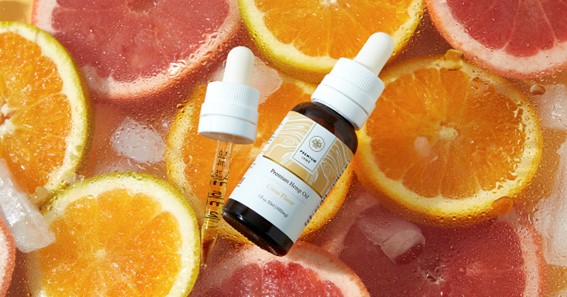The term ‘anxiety’ covers a vast range of conditions that all share some similar symptoms. Anxiety may refer to panic disorders, phobias, post-traumatic stress disorder (PTSD), social anxiety disorder, or generalized anxiety disorder (GAD).
Of course, it’s common to feel anxious and nervous before a big event or public function, but this does not mean you have ‘anxiety.’ Instead, this is a mental illness that affects 3.1% of the American population.
In this article, we will be talking about what anxiety is, how it is treated, and whether you could be using CBD as an effective alternative form of treatment.
First, What is Anxiety?
Suffering from anxiety can be extremely debilitating. Those afflicted feel anxious most days – you may not be able to remember the last time you felt relaxed. The symptoms of this anxious feeling may manifest both psychologically and physically, including:
- Feeling restless and worried.
- Having trouble concentrating.
- Dizziness.
- Heart palpitations.
- A sense of dread.
- Irritability.
- Tiredness.
- Dry mouth.
- Insomnia.
- Excessive sweating.
- Trembling or shaking.
- Nausea.
These symptoms are often experienced during any anxious thoughts or feelings, such as before public speaking. However, those suffering from an actual anxiety disorder experience these symptoms more or less all the time; this is why it is so hard to live with.
In the case of phobias or panic disorders, there may be an obvious trigger that creates the anxious feeling. Claustrophobia, for example, is triggered by enclosed spaces. However, in the case of GAD, sufferers may have no explanation for why they feel this way. This can, unfortunately, worsen the feeling of anxiety and stress, as you may start to worry that there is no solution.
If you feel like you or a loved one is experiencing something similar to what is described above, then it is important to visit a doctor for a diagnosis. They will be able to help you with the next steps, including what medications might be able to help with your condition.
Click here – Can I Take CBD at Work? [Answered]
Traditional Anxiety Treatments
There are a few different treatment options for anxiety disorders. Cognitive Behavioral Therapy (CBT) is a common option, as it has been suggested that the benefits of CBT last longer than those of medication. However, it doesn’t work for everyone.
CBT involves a counselling-type treatment with a twist. It teaches you ways to help cope with your condition, helping you to question your negative thoughts and challenge your anxiety. Often, this involves meeting with a therapist weekly for a 3¬–4-month period. However, sometimes you can take online CBT courses or use a CBT workbook to help you instead.
Other therapy methods include applied relaxation, which teaches you how to relax your muscles (including how to do this quickly and in response to a trigger), and helps you to practise relaxing your muscles when you are in an anxiety-inducing situation. Once again, this usually involves meeting a therapist once a week to practice these techniques.
Sometimes, a doctor will recommend medication instead. Medication for anxiety usually involves selective serotonin reuptake inhibitors (SSRIs). These are the same type of medication as is used for depression, and they include the likes of sertraline, escitalopram, and paroxetine. They work by increasing the level of serotonin in the brain, making you feel more content.
Sadly, SSRIs have a long list of side effects, including:
- Agitation.
- Nausea and vomiting.
- Indigestion.
- Diarrea and constipation.
- Loss of appetite and weight loss.
- Dizziness and blurred vision.
- Dry mouth.
- Excessive sweating.
- Headaches.
- Insomnia or drowsiness.
- Low sex drive.
- Erectile dysfunction.
Sometimes, patients can become addicted to antidepressants, which is obviously a severe and troubling side effect. For this reason, doctors try to avoid prescribing them where possible and instead stick to the therapy options, or they may recommend a combination of the two.
In a perfect world, therapy and antidepressants would help sufferers of anxiety without any side effects. Unfortunately, this is not the case. That being said, it could be possible that CBD, a compound found in cannabis, may be able to help.
What is CBD and Why Could it Help?
Cannabidiol, often just referred to as CBD, is one of the active compounds from the cannabis plant. Recently, it has gained traction as a popular dietary supplement and an alternative treatment for a number of conditions. One such condition is anxiety disorder, but is there any truth in this myth or is it just rumor?
Some people associate cannabis with elevated levels of psychosis and paranoia, which is completely the opposite of what those who have anxiety are wanting to achieve. However, these effects are the result of (extremely high doses of) THC, which is a psychoactive compound. CBD, on the other hand, is completely non-intoxicating, meaning it can’t get you high. But can it actually reduce any of the symptoms of anxiety?
In 2011, Brazilian researchers from the University of Sao Paulo published a study on the effects of CBD on social anxiety disorder. This was a double-blind study in which neither the patient nor the researchers knew what was being administered to each individual. The 10 participants received either 400mg of CBD or a placebo. The results were recorded, and then a second session took place later where each individual was given the dose they had not received the previous time. The researchers concluded from the data collected that CBD “reduces anxiety in SAD”.
Another 2011 study published in Psychopharmacology gained a lot of attention. There were 24 patients with social anxiety disorder involved in this double-blind study, all of whom had never been treated for the disorder. Each patient was given either 600 mg of CBD or a placebo. They were then asked to deliver a public speaking test. Those who had taken the CBD dose experienced significantly lower levels of anxiety than those who had received the placebo.
These studies are quite promising, as they suggest that CBD is a viable option for those suffering anxiety. More research will continue to take place in this field, hopefully confirming the results of these seminal studies to prove once and for all that CBD is a potential avenue of treatment. For now, you can still talk to your doctor about the possibility of taking CBD oil to reduce your symptoms. If you feel that therapy and medication is not for you, it may be that CBD is a viable option.
CBD Capsules vs. CBD Oil for Anxiety
If you decide to try CBD Oil for anxiety by PremiumJane from Australia, you might wonder how is best to take it. Two of the most popular options for administering CBD include CBD capsules and CBD oil.
The latter is the original in CBD consumption. It involves extracted CBD suspended within an inert oil. To take it, all you do is simply place some of the oil beneath your tongue and hold it there for up to 90 seconds, then swallow. The CBD is absorbed directly into your bloodstream and takes effect quickly.
CBD capsules are a much more convenient option, as all you need to do is swallow a pill with water, just like any regular capsule. They also taste better than CBD oil. The downside is that CBD capsules take longer to take effect, meaning that you could be waiting up to two hours to experience a decrease in symptoms.
Deciding which product to take is all up to you and your needs. If you want quick relief from your symptoms, then CBD oil is the way to go. If you want to take CBD while out and about and are worried about the prying eyes of people nearby, then capsules are the better option.
Have you tried CBD for anxiety? How did you find it, and what is your preferred method of administration? Let us know in the comments!
Click here – 10 Major Reasons You Need to Invest in Home Security Systems Right Now





